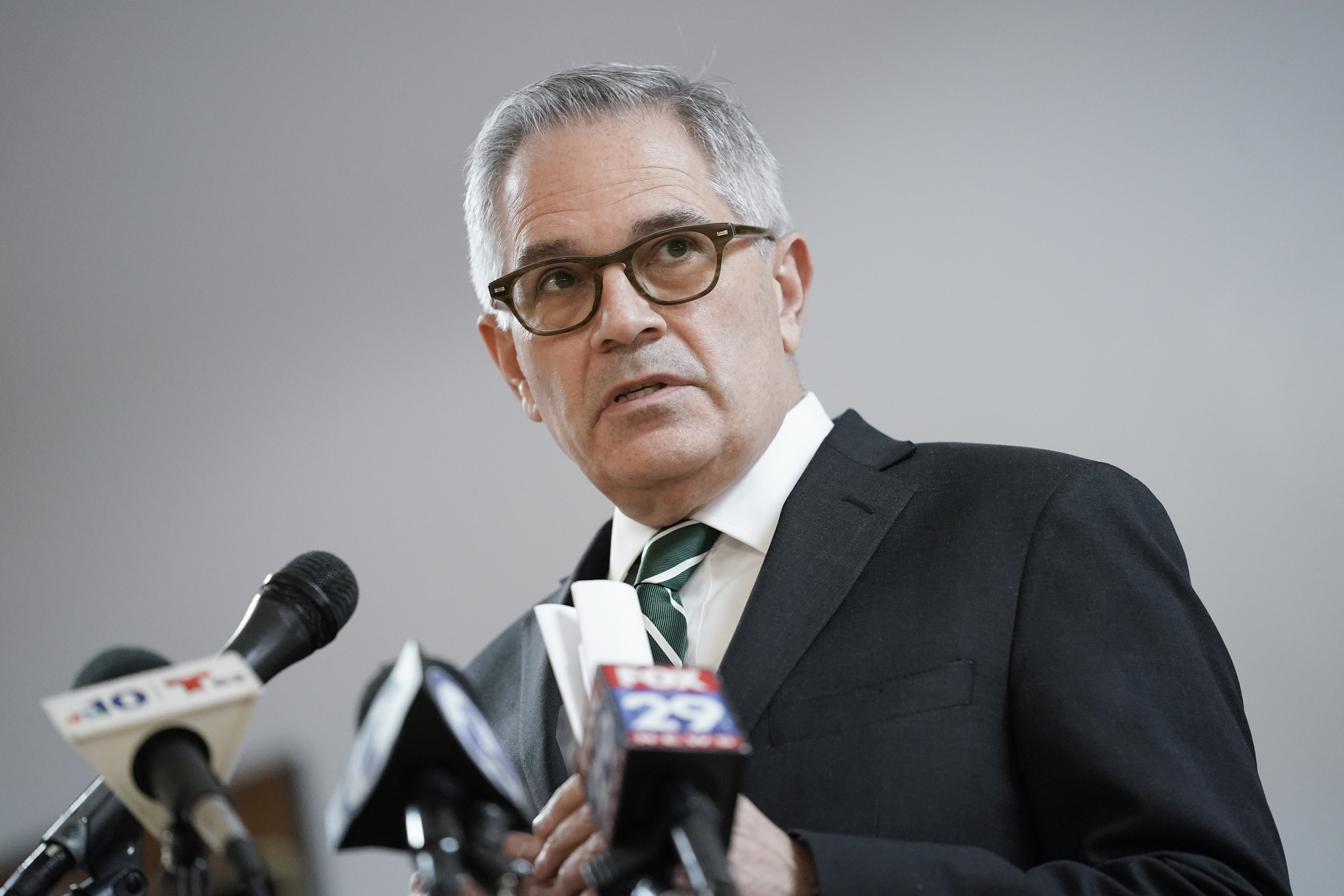SEPTA is intervening in Philadelphia District Attorney Larry Krasner's case against Act 40, calling the controversial new law an "additional resource" to fighting crime.
The legislation -- which was sponsored by Republican state senator Wayne Langerholc -- would give a special prosecutor jurisdiction of any crime committed on SEPTA's property. It was signed into law by Democratic Governor Josh Shapiro in December.
In January, Krasner brought forward litigation in an effort to block the law, arguing that a special prosecutor would take away his jurisdiction over most of the city, as the yet-to-be-appointed office would oversee crimes that occur on or within 500 yards of any SEPTA property.
Act 40 controversy
Get Philly local news, weather forecasts, sports and entertainment stories to your inbox. Sign up for NBC Philadelphia newsletters.
Krasner's office has argued that through Pennsylvania's Title 22 -- and an amendment that provides college police forces authority on crimes on or within 500-yards from campus -- the special prosecutor could have jurisdiction over a majority of the city.
He said that, because of this, the move would erase the will of voters as these cases would then be tried by an individual who was hired and selected for the position by the Attorney General's office, instead of having cases prosecuted by someone elected by Philadelphia residents, as he was.
"What occurred with that bill is in fact, the erasure of 155,102 votes," he said.
On Thursday, a SEPTA spokesperson told NBC10 that Act 40 would be a “supplement” to Krasner’s office, rather than a replacement, however.
“Act 40 provides for concurrent jurisdiction and is a supplement to the Philadelphia District Attorney’s Office, not a replacement. For SEPTA, it provides another resource to help address crime on the system,” the spokesperson wrote. “SEPTA’s top priority is to improve safety, security and cleanliness on the system, and Act 40 aligns with those efforts.”
On Feb. 20, 2024, SEPTA filed a motion to intervene in Krasner’s case against Act 40.
“Act 40 creates a new role to supplement the Philadelphia DAO and give SEPTA and the City of Philadelphia an additional resource to combat crime,” the motion states.
SEPTA’s stance appears to fall in line with Gov. Shapiro’s recent comments on Act 40. In an episode of "Battleground Politics," Shapiro told NBC10’s Lauren Mayk that the law was simply a case of “concurrent jurisdiction” and that Krasner’s power wouldn’t be removed.
Shapiro said that the move wouldn't impact Krasner's jurisdiction and would instead enable a special prosecutor -- to be hired by the state's Attorney General's Office -- to step in and handle cases that involve crimes on SEPTA property to provide additional law enforcement support for the mass transit system.
He called it a case of "concurrent jurisdiction" that would protect Philadelphia residents.
"We are not taking away power, we are adding law enforcement resources," Shapiro said. "I'm the former Attorney General of Pennsylvania. We have concurrent jurisdiction with DAs in a whole range of cases, that's nothing new. Having that concurrent jurisdiction, bringing more law enforcement resources into the City of Philadelphia is a good thing."
After the interview however, Krasner claimed that some of the governor’s comments on the new law were “flatly untrue.”
"Any suggestion that this was somehow 'just helping' the District Attorney's office to give an unelected prosecutor the right to take away as much as 80-percent of all of our cases is flatly untrue," Krasner said when asked about the governor's statements.
Krasner also said he would gladly sit down with Mayk and Gov. Shapiro to further discuss the issue.
"Then, maybe we can have a robust exchange of ideas," suggested Krasner.
NBC10 is working with Krasner's office to set up an interview in the near future.




